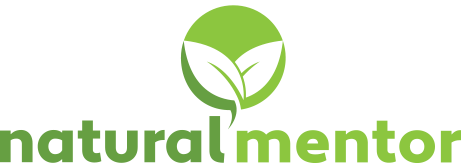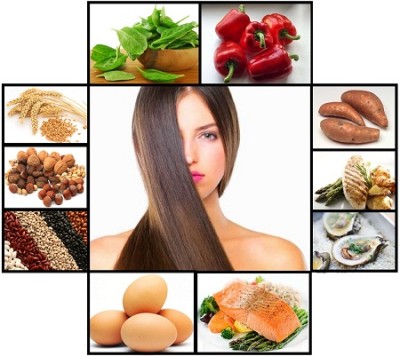Much to our dismay, hair loss is a fairly natural part of growing old. This doesn’t mean that it has to be inevitable, though.
We’ve come a long way since the days of passively accepting the downturns of old age. Mounting evidence now demonstrates that lifestyle can play a profound role in slowing down the aging process. Scientists have even begun to unlock some of the secrets of epigenetics—the science of changing the way your genes express themselves.
While genetics certainly play a role, you really can tip the scale in your favor with the right brand of lifestyle design. Aches and pains, neurological degeneration, and other “side effects” of growing older can all be prevented or even reversed—and hair loss is no exception.
Dietary factors that lead to hair loss
Though nutrition is a subject that’s given notoriously little attention during medical school, an increasing number of scientists are finally acknowledging that it plays a massive role in maintaining optimal health. As pharmaceutical companies press ahead with the development with immune-suppressing, dangerous, and not altogether effective hair loss drugs, you can rest assured that proper diet can safely work wonders for your ailing hairline. Here are some of the most prominent hair loss factors to watch out for…
-
Imbalanced diet. Any kind of extreme diet—including fast weight loss diets, “crash diets,” or those that require you to remove an entire food group— can very easily cause hair loss. Such regimens sometimes induce hair loss because of the acute stress they place on the body; more often than not, though, hair falls out because these diets deprive your body of the nutrients and minerals it needs for proper hair growth. Some of these deficiencies (which can also occur even if you’re not on any kind of stressful diet) are discussed below.
-
Protein deficiency. Protein makes up a good portion of hair follicles, so it stands to reason that not getting enough of it would lead to hair thinning and hair loss.
Make sure you’re eating clean, highly absorbable forms of protein, like pea, hemp, wild Alaskan salmon, and grass-finished beef. If you’re a vegetarian, it’s even more important to make sure that you’re getting enough protein—drinking a daily protein shake like this one is a great way to do so.
-
Iron deficiency. An estimated 3.4 million Americans are anemic (and that doesn’t include the vast number of undiagnosed cases).[1] Iron is essential for building healthy red blood cells, which stimulate scalp and body hair growth by carrying oxygen and nutrients to these areas. Low iron levels in your blood are often caused by a mineral-deficient diet. After all, conventional crops of the agricultural industry are woefully mineral-depleted, simply because unsustainable farming methods have all but stripped the soil of its minerals and nutrients. As long as you’re eating plant and animal products that are organic and sustainably produced, it’s still possible to receive a good dose of iron from your diet, though.
The best food sources of iron include lean beef, turkey, chicken liver, eggs, oysters, clams, tuna, and shrimp, oatmeal, beans, lentils, tofu (just don’t eat too much, as it can negatively impact hormonal balance, especially in women), spinach, and peanut butter. Whole wheat bread also contains a decent amount of iron, but the risks of eating gluten may outweigh the benefits.
Getting this critical mineral from your food is preferable to taking iron supplements, which are easy to overdose. If you suffer from severe anemia and need to supplement with iron, make sure you have a doctor monitor your iron levels throughout the process, so that you don’t overdo it.
-
Potassium deficiency. When your body doesn’t receive enough potassium, the subtle balance between potassium and sodium—which regulate blood pressure and water retention—is thrown off. As a result, excess sodium builds up around hair follicles, blocks the absorption of nutrients, and thus causes them to fall out.
Potassium is another mineral that’s best gotten through the proper foods, which include bananas, dairy products (just watch out for conventional milk and store-bought yogurt), grass-finished meats, carrots, broccoli, potatoes, yams, lima beans, brown rice, apricots, avocados, apples, figs, and peaches. Create a balanced diet from these choices (not too much of any one of them), and your deficiency won’t stick around for long.
-
Vitamin C deficiency. I’ve written previously about the wonders of vitamin C. Even if you think you’re getting “enough” vitamin C, keep in mind that the RDA (a measly 60 milligrams) is only the bare minimum required to prevent scurvy (many scientists now believe this low threshold might be at 100 milligrams instead, and are lobbying to have the RDA raised).[2]
The real magic starts when you take a gram or more of it per day—and one of its benefits just happens to be hair thickening. This is because the body uses vitamin C to make collagen, which keeps hair follicles thick and healthy.Citrus fruits, kiwi, bell peppers, leafy greens (especially kale), strawberries, and acerola cherries are all vitamin C-rich foods. Also be sure to try plant-based vitamin C supplements and liposomal vitamin C to get the most out of it.
-
Silica Intake. In 1939, the Nobel Prize winner for chemistry, Professor Adolf Butenandt, proved that life cannot exist without silica (also known as silicon dioxide). In humans, silica is essential to the development of the skeleton. It is also an important component of hair, and an adequate intake of silica is thought to prevent baldness and stimulate hair growth.
Silica is present in substantial amounts in a wide range of foods, including strawberries, green and red peppers, millet, barley, wheat, cucumbers, oats, rice, bean sprouts, potatoes, and asparagus. Processing of foods as well as chemical treatment of the soil can significantly decrease the silica content of foods. Therefore, in order to ensure an optimal intake of silica, it is advisable to opt for organically grown and unprocessed foods.
-
Vitamin B deficiency. B vitamins are another nutrient type in which vegetarians are often lacking (you may still be deficient even if you consume animal products, though). Specific B vitamins such as biotin, pantothenic acid, and folic acid are associated with healthy hair and skin, so making sure to eat enough foods that contain them is another measure against hair loss.
These foods include wild Alaskan salmon, tuna, sunflower seeds, hazelnuts, peanuts, oatmeal, and eggs. Vegetarians should have their vitamin B levels monitored, and should consider taking supplements if these foods are not sufficient.
You control your body’s destiny
Here’s the moral of the story: don’t wait around for that long-promised pharmaceutical “hair loss cure,” and if you’re finding hair loss frustrating, don’t feel like you have to accept it as an inevitability.
Instead, take control of your diet, closely monitor your nutrient and mineral levels, and use proper dietary habits to steer your health in exactly the direction you desire.
References
[1] http://www.clevelandclinicmeded.com/medicalpubs/diseasemanagement/hematology-oncology/anemia/






